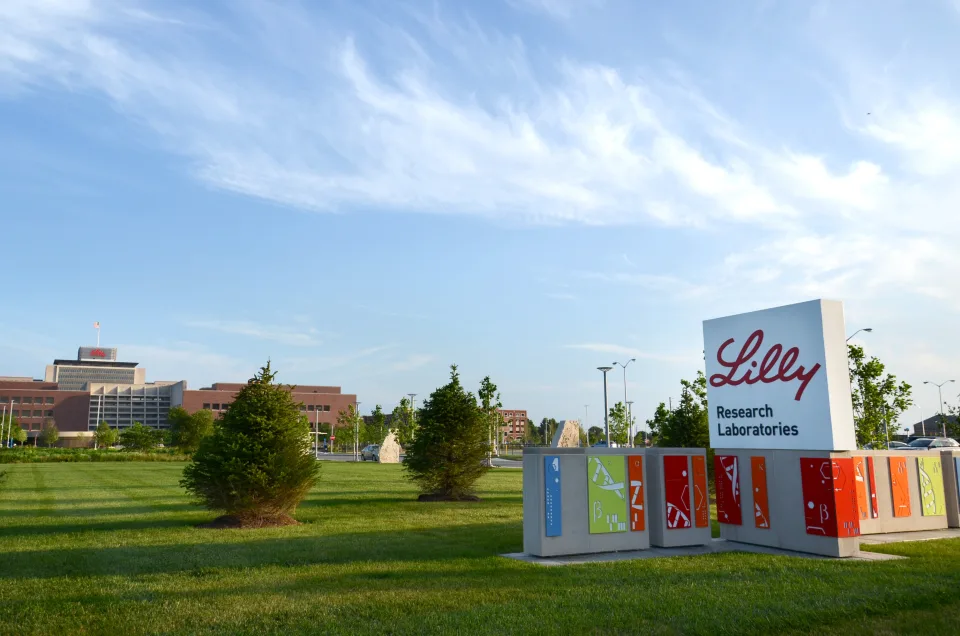Eli Lilly’s (NYSE: LLY) stock took a steep dive, falling nearly 10% in premarket trading following a Q3 earnings report that failed to meet Wall Street’s revenue expectations. The company, known for its leadership in innovative drugs, including weight-loss and diabetes medications, also reduced its profit guidance and lowered the high end of its annual revenue outlook.
Eli Lilly reported third-quarter revenue of $11.4 billion, falling below analysts’ estimates of $12.17 billion despite showing a robust 20% year-over-year growth. Net income was $970.3 million, missing projections and putting additional pressure on its stock performance.
GLP-1 Drug Portfolio Shows Promise Despite Revenue Misses
The company’s popular GLP-1 drugs, such as Zepbound for weight loss and Mounjaro for diabetes, were highlights in its portfolio. However, Zepbound’s revenue fell short of expectations, coming in at $1.3 billion compared to the anticipated $1.7 billion. Eli Lilly attributed these shortfalls to inventory reductions in the U.S. wholesaler channels, which impacted sales.
Industry expert Jared Holz of Mizuho Securities had projected strong performance for Zepbound but anticipated a potential shortfall for Mounjaro due to a shift in demand toward Zepbound, which offers a higher dosage for weight loss. Mounjaro generated $3.1 billion in sales this quarter, contributing to a combined $4.4 billion in revenue from both drugs.
Eli Lilly’s Alzheimer’s Treatment and Rising Market Presence
Eli Lilly’s growth isn’t solely tied to its GLP-1 offerings. The company is advancing its Alzheimer’s treatment candidate, Kisunla, aiming to challenge Biogen’s (BIIB) Leqembi. Recent studies indicate that lower initial doses of Kisunla may reduce the risk of brain swelling, a major side effect of Alzheimer’s drugs.
Driven by demand for obesity and diabetes treatments, Eli Lilly’s stock has surged by over 50% in 2024. This remarkable growth has positioned the company on a path toward potentially becoming the first trillion-dollar healthcare corporation. To meet demand, Eli Lilly has been striving to resolve shortages, and it recently launched a direct-to-consumer platform to offer cost-effective access to its tirzepatide-based drugs.
Report contributed by Mogtma News

Leave a Reply